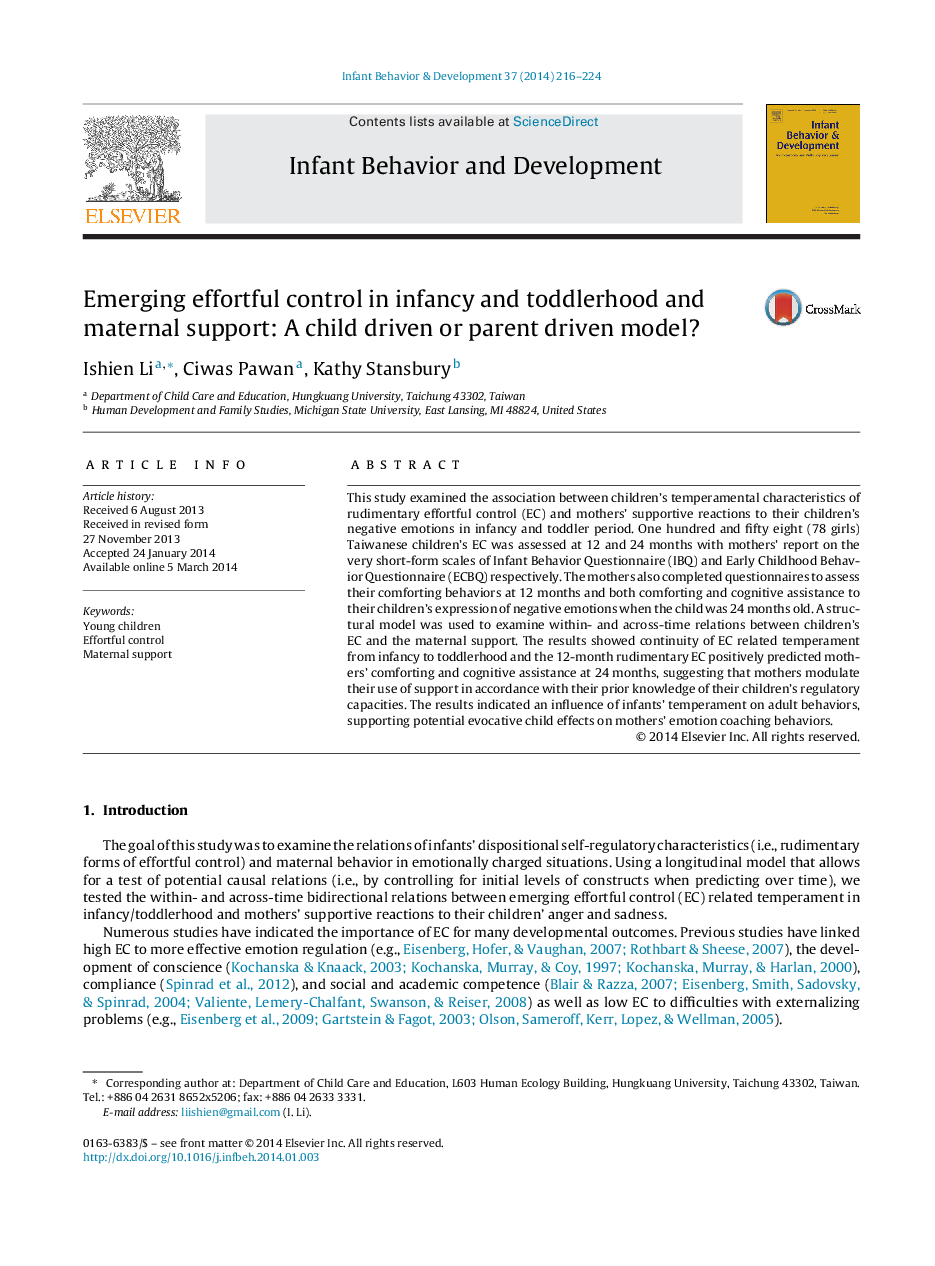| Article ID | Journal | Published Year | Pages | File Type |
|---|---|---|---|---|
| 917185 | Infant Behavior and Development | 2014 | 9 Pages |
•A structural model was used to examine within- and across-time relations between children's EC and the maternal support.•Continuity of effortful control related temperament from infancy to toddlerhood was found.•Infants’ effortful control positively predicted mothers’ later comforting and cognitive assistance.•The results indicated an influence of infants’ temperament on adult behaviors.•The results supported potential evocative child effects on mothers’ emotion coaching behaviors.
This study examined the association between children's temperamental characteristics of rudimentary effortful control (EC) and mothers’ supportive reactions to their children's negative emotions in infancy and toddler period. One hundred and fifty eight (78 girls) Taiwanese children's EC was assessed at 12 and 24 months with mothers’ report on the very short-form scales of Infant Behavior Questionnaire (IBQ) and Early Childhood Behavior Questionnaire (ECBQ) respectively. The mothers also completed questionnaires to assess their comforting behaviors at 12 months and both comforting and cognitive assistance to their children's expression of negative emotions when the child was 24 months old. A structural model was used to examine within- and across-time relations between children's EC and the maternal support. The results showed continuity of EC related temperament from infancy to toddlerhood and the 12-month rudimentary EC positively predicted mothers’ comforting and cognitive assistance at 24 months, suggesting that mothers modulate their use of support in accordance with their prior knowledge of their children's regulatory capacities. The results indicated an influence of infants’ temperament on adult behaviors, supporting potential evocative child effects on mothers’ emotion coaching behaviors.
